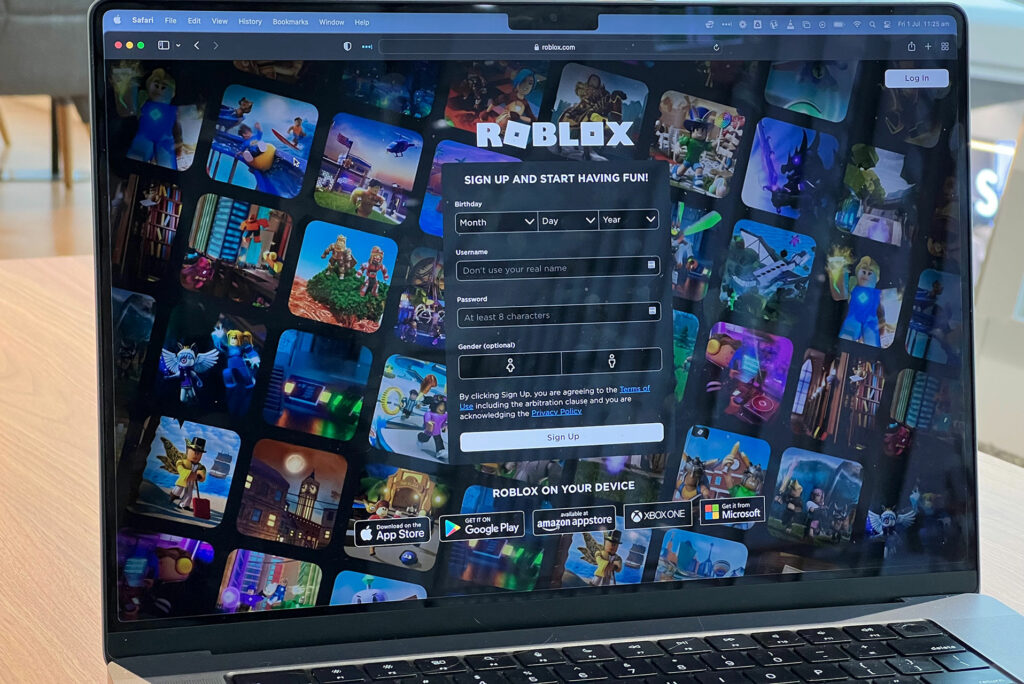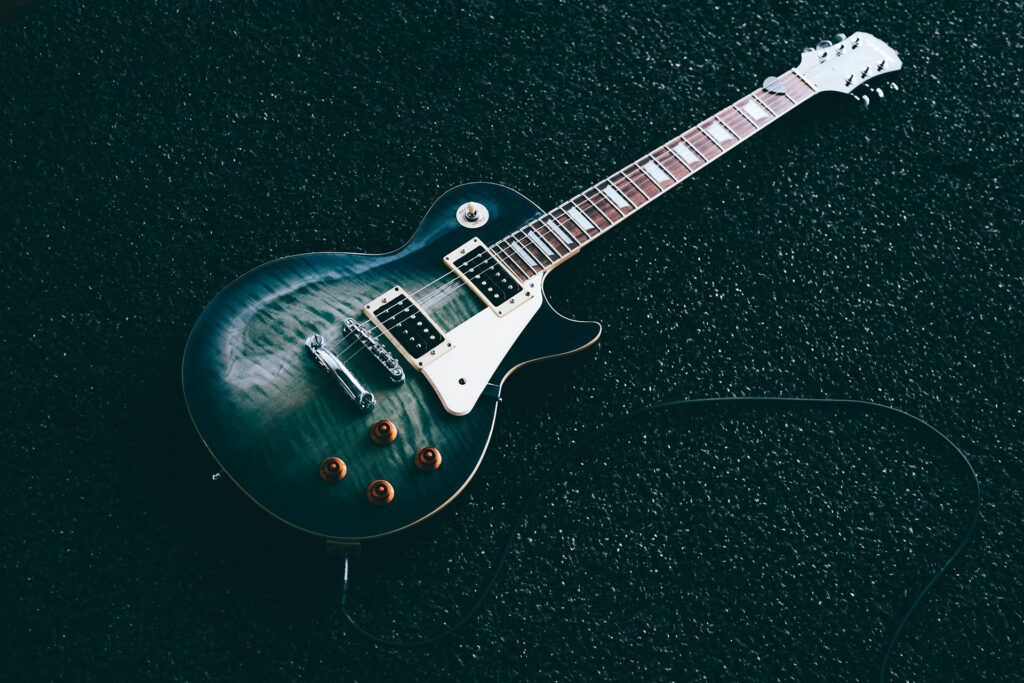If you want to get the attention of my 11-year-old Vincenzo (Enzo, for short), you would be well-served hitting him up on ROBLOX. This seemingly low-resolution video game in the metaverse has him and every boy (and many a girl) every bit as hooked as their older brethren are on platforms like TikTok or Instagram. These eight-bit-looking games of the metaverse are designed by users for like-minded users, and these young boys and girls simply can’t get enough of these titles. After seeing my son interact with ROBLOX, and knowing that there was a pending IPO, I made sure to buy a modest amount of stock for Vincenzo’s college fund, and that has turned out to be a smart move. Although we have since sold our equity position in ROBLOX, thus guaranteeing our gains, that doesn’t change the fact that Generation Alpha (the ones younger than Generation Z, who are just getting to college now) are still hooked on this powerful, youth-oriented online platform. And when I say hooked, I mean it. Today’s tweens (aka: pre-teens) are simply captivated by this retro-gaming platform.

Just heading into middle school, Vincenzo has the option to take an elective class. One of the pretty cool options for Fifth Period is for him to learn to play guitar. His father is a terrible guitar player, but does have a degree from a top music school, so this type of academic endeavor is always encouraged in our home. Without having to wait for Christmas, Enzo was recently gifted a really nice Gibson Epiphone acoustic guitar, a travel case, and many of the key accessories needed to rock out. Early in his first year of middle school, Enzo has been using his elective class to get ahead in his other schoolwork, as he wants to be invited into Honors programs next year for seventh grade, but he’s pretty fired up about learning how to play “Wish You Were Here” around the campfire. There is even a merit badge for Music in the Boy Scouts, as Enzo is early in the process of becoming an Eagle Scout, so he’s got even more motivation to put in his 10,000 hours to become an expert on the six strings.

Gibson Guitar Takes Decisive Action to Teach More Young People to Play Guitar…
There are some who say that rock and roll is dead, and when you look at the list of rock stars who have passed away to date – who could blame them? The most popular artists of the day (I can see Taylor Swift rocking her acoustic guitar in my mind’s eye) still play guitars, but they tend to be a little bit more pop star than rock star in today’s world of mainstream music. Gibson knows that they curate one of the most important icons in music (the Les Paul guitar), and it is their challenge to make the most of this opportunity, not just for well-heeled amateur rock stars, but for the youth as well who might need a little more interaction and cultivation to become super-music fans a little later in life.
Gibson has brilliantly produced an entire video series that teaches guitar in a much more meaningful and simple way than the way that I learned the instrument. I can feel music theory professors wanting to fail me for typing this, but traditional musical notation is a terrible way to learn how to play guitar. Look at the opening modified E chord of Jimi Hendrix’s “Purple Haze” as an example. Could you illustrate every note of the chord in traditional musical notation? Sure, you can, but when you are learning to play guitar, do you have the ability to see how said chords are played and voiced? Let’s say this much … a video will make a hell of a lot more sense than a sheet of music. Going deeper into trying to learn how to be a new-school Jimi Hendrix, how do you tell somebody that Jimi Hendrix, because of his self-taught method and physically gigantic hands, often used his thumbs on the low-E string, versus a more traditional power chord phrasing? In the past, these details simply didn’t translate well from the musical page to the convincing performance that you might get from a different instrument. Video of experts playing these somewhat tricky yet classic songs paves the way to being a more evolved guitar enthusiast.
Gibson is thankfully way out in front of these educational issues on the guitar. It is one thing to have an app, as most consumer electronic and/or musical instrument companies can say that they do. Gibson brings the idea of getting guitar lessons right to the people via the learning part of their app (check it out here). At little to no cost, you can learn how to play guitar from the very basics to pretty advanced techniques. The coolest part is that you can get interactive feedback right from the app. As you get better, you can learn more and more songs, as well as techniques. A great guitar teacher could deliver this experience in the past, but not all guitar teachers are this good and, back then, we didn’t have streaming video to learn from. Today, as our aspiring musicians get better and better at their instruments, they also learn the difference in sounds, pickups, configurations, styles and more. Wanna play the intro to “The Song Remains the Same” from Led Zeppelin’s Houses of the Holy record? It helps to have a double-neck guitar to get the best performance. How do you know that you need a double-neck guitar in your collection if you don’t ever try to play songs that use such an instrument? Gibson is really onto something here.
The National Hockey League Has Pivoted to Try to Appeal to Younger Audiences
When I was a very young child, my parents lived in Voorhees, New Jersey. This is also where most of the Philadelphia Flyers of the “Broad Street Bullies” era lived. The All-Time NHL penalty minute record holder (a sports record that will never, ever be broken) is Dave Schultz, and he lived three doors up from our home in suburban New Jersey. It didn’t take long for the sports-crazy fans of Philadelphia to learn that the Flyers were a team worthy of attention. They came into the league in 1967 in a big expansion for the league. Only a few years later, the Flyers were winning back-to-back Stanley Cups, with their star players beating the hell out of the Russian National Team and eventually losing out on an NHL dynasty to Scotty Bowman and his nearly unbeaten Montreal Canadians in 1977. My father got on the list for season tickets for the Flyers in 1974, and we finally got four tickets on the fifth row of Section I in the old Philadelphia Spectrum, which were just fantastic.
Growing up as a young man in the 1980s, the Flyers scheduled day games on both Saturdays and Sundays, which allowed families to bring their kids, who learned to love the game from an early age. Living in Los Angeles for the past 30 years now (and it is the same in New York for the Rangers), there are barely any day games all season long. The two or three yearly day games were sold out early and came with a premium price, regardless of the opponent. I wasn’t able to take Vincenzo to an NHL game until he was nine years old and, by then, he had developed other interests outside of hockey. He doesn’t really dream of going to NHL games in person, as they don’t compete with Boy Scouts, ROBLOX, learning to play golf (with his Dad, but professionals giving him the lessons), or any number of other options vying for his attention. With many other Generation X parents who grew up on hockey, the time and money needed to invest into being an NHL super-fan is often too much to justify.
With a potentially lost generation at hand, the NHL made a very smart move and built their own experience in the metaverse with ROBLOX. This is the one place where you can talk to Generation Alpha on their own terms. This is speaking to younger people in a language that they truly understand and react to positively. Speaking as a long-time hockey fan (one who sadly watched The Great One in his prime win not ONE but TWO Stanley Cups over my Flyers in the 1980s), NHL hockey sadly doesn’t mean the same things to many kids today as it did with us back then. Perhaps getting today’s youth an introduction to the NHL game through ROBLOX will change that outlook? It sure as hell can’t hurt the league’s efforts to grow the game’s appeal, now that they have teams in 32 markets here in North America. If kids are finding the game in the metaverse as they would with Bed Wars or Resort Tycoon (both popular and organically-grown games under the ROBLOX umbrella), then why not get an introduction to hockey? It doesn’t take watching too many games of Connor McDavid on the 2023-24 Edmonton Oilers to fall in love with the game. Even the uninitiated look at “The Next One” (aka: Connor Bedard), who is proving to be a superstar pro NHL hockey player at 18 years old, and can see a young man that is very relatable. The issue is: how do you get started? The NHL has a nice entrée to the game now up and running.

What Would an Audiophile Program Look Like to Attract Younger Enthusiasts?
This is a very open question, and we highly encourage you to share your thoughts in the moderated comments below. Basically, this topic is a blank page in terms of what could be done with nearly endless youth outreach possibilities. Much like the world of musical instruments or pro sports, the audiophile community badly needs more youth and diversity. That’s the whole premise of FutureAudiophile.com as a publication, right?
Millennials, Generation Z and even Generation Alpha deeply love music, and that is a very good first step. They also are way into (and not in any way afraid of) technology, which is yet another barrier lifted when compared to other, older generations.

Here Are Some Ideas That the Audiophile Industry Could Try to Make Similar Gains with New Audiences
- Work together as a group to grow the audiophile hobby – Real industries have lobbyists, even small ones. We used to have a powerful lobbyist in Washington D.C. by the name of Gary Shapiro, but that relationship is basically over at this point. Audiophiles aren’t sought-after guests of the Consumer Technology Association’s CES show in Vegas every January after having been the Belle of the Ball for more than a generation at that global trade show event. The audiophile hobby, respectfully, needs a new lobbyist who can market and promote our hobby, with deep industry financial support.
- Be Inclusive – The audiophile hobby has historically been about Baby Boomer men listening to music by themselves, in an often dimly-lit and sometimes cluttered room. Younger people simply consume music differently today, and if we don’t speak to them in terms that they relate to, there is little hope. Give the NHL major points for speaking to its next generation of fans in the metaverse in terms that they absolutely understand. We need to do the same when seeking to find new audiophiles, even if the conversation starts with a pair of earbuds.
- Do outreach – With a little financial backing, what about creating a not-university-specific college course curriculum for a class about Consumer Electronics? Cover the basics of the business. Go over basic system setup, including the component categories. Briefly cover the 100-plus-years-long history of reproduced sound and its many important advances. Touch on the extremely relevant topic of hearing loss, especially with headphones or at live concerts. The third-party verification of top universities endorsing careers in Consumer Electronics would go a long way.
- Look forward versus clinging to our audiophile past – Too many audiophiles sadly love living the past in ways that the next generation doesn’t relate to, as soon as the Compact Disc offered “Perfect Sound Forever” and audiophiles doubled down on vinyl. Today’s new-school Class-D audiophile amplifiers offer huge advantages over tube amps, yet the more esoteric and expensive the tubes or the amp design, the more they get traditionalists to give them the love. This living in the past needs to change, as the next generation of audiophiles isn’t going to look anywhere other than forward with technology, as that is how their world works. Forget a Cassette Tape comeback. They aren’t going to be faxing their resumes for their first jobs, either. We need to embrace the best of new technologies and show this all-important demographic how new audio technology is a worthy investment of their cash. Live music festivals, such as Coachella, Bonnaroo and Stagecoach, have accomplished this level of demand from young people, yet we are in a world where even a beyond-modest audiophile system can deliver a concert experience 365 nights per year for less than the cost of a few nights stay at a respected music festival.
- Be a mentor – Recently, I have been seeking to buy a vintage Nakamichi Dragon tape deck from the 1980s, not because I am collector of vintage audiophile gear, but because of the distinct memory of going with my childhood friend and his Dad to pick one up at Bryn Mawr Stereo in Jenkintown, Pennsylvania, circa 1986. This tape deck had so many knobs and options that, to this day, I don’t know what all of them do, but I still want one. Who is doing this for today’s youth (hint: it should be us)? Invite some teenaged kids over (perhaps with their parents, too) and stream them some of the music that they like in your system. Play them the difference between a record on LP versus CD versus HD streaming and let them tell you what they hear in terms of differences. Maybe take some younger people to a local stereo store and audition some gear there? Discussing value versus performance puts things into good perspective for a start into the hobby. Talk about Chi-Fi and what can be done in the hyper-affordable world of audio today that was simply impossible only a few years ago. Do a shootout of a badass pair of wired headphones versus wireless ones and discuss the sonic differences versus the real-world differences. These conversations are what start the love affair with audio, but there has to be a start to the process somewhere.
What Has One Year of Publishing FutureAudiophile.com Taught Me?
Humility is a starting point for my learning process. Finding young people who are interested in cool stereo systems isn’t impossible, but it isn’t a cakewalk, either. Personally, I am an extrovert who will talk with pretty much anybody. When I was at Capital Audiofest this fall, I spoke with a young couple (early 20s) who are both into the hobby and were having a blast at the event. I’ve had young flight attendants get very involved with a one-song music demo on my audiophile-quality but also fashion-forward Bowers & Wilkins Px8 wireless headphones (read the review). After I played my brief demo for the young flight attendant, he asked if I could do it again for his colleague, a young woman working a good dozen rows behind where I was sitting. He signaled to me to “HIT PLAY” from my seat and we had another convert. I almost just gave them the headphones, but I needed them for the rest of my trip, and they are somewhat expensive at $699 per pair. However, they were being conveniently sold at the airport concessions at Dulles Airport when we landed.
The process of finding a new generation of audiophile enthusiasts isn’t going to be easy. It isn’t going to be a fast process, either, but if we fail to address the issue, then we have nobody to blame but ourselves for the hobby going the way of the dodo bird. With younger generations loving music more than Boomers and Xers, paired with their endemic understanding of technology, the foundation is there for success. The question is – will we invest in our future when circling back to the past is in our DNA? Let’s hope we get this one right.



